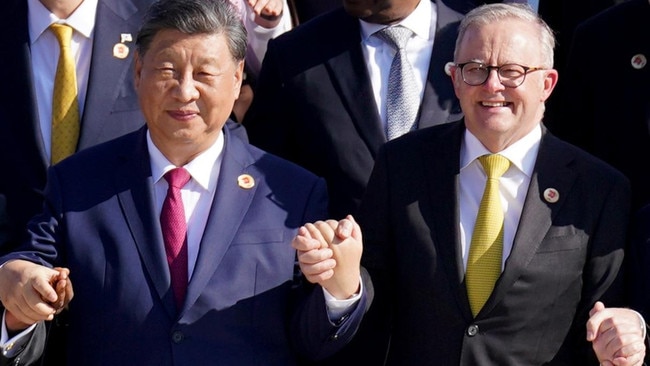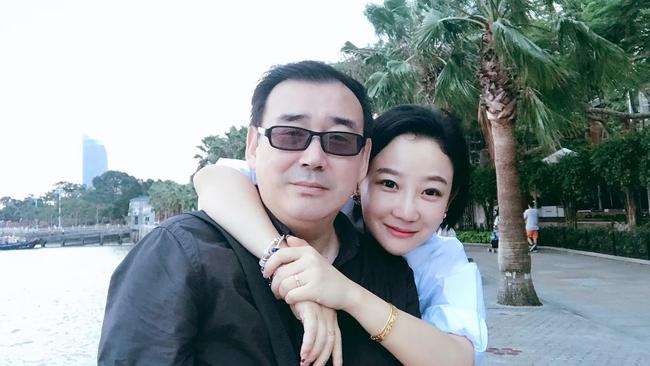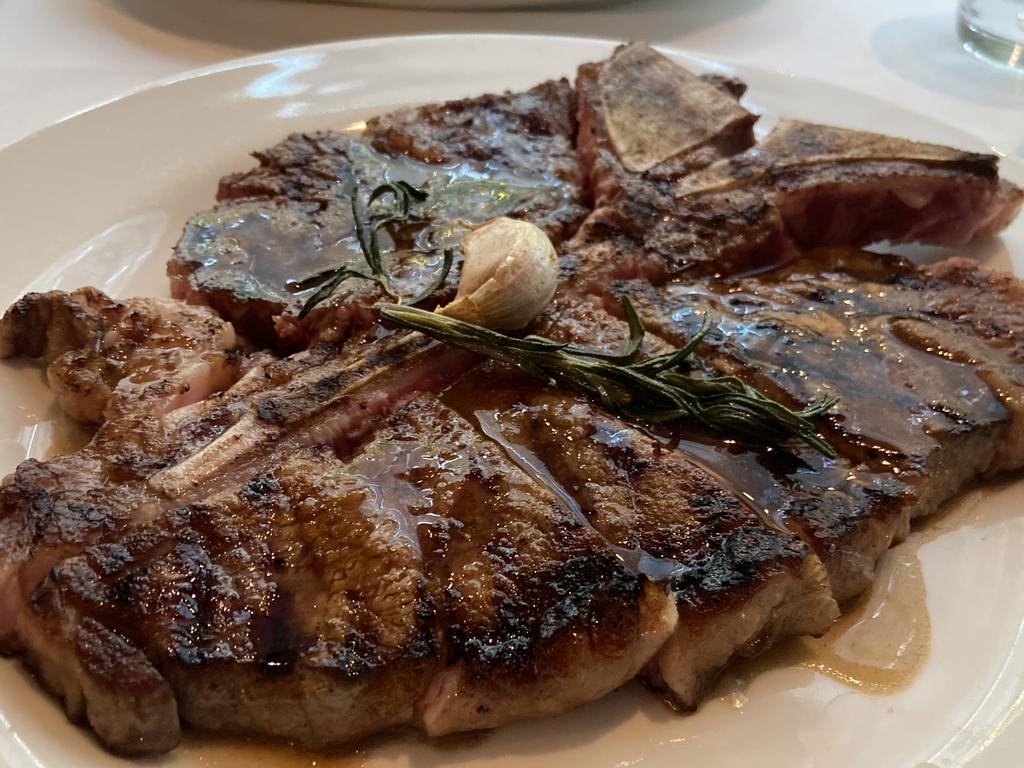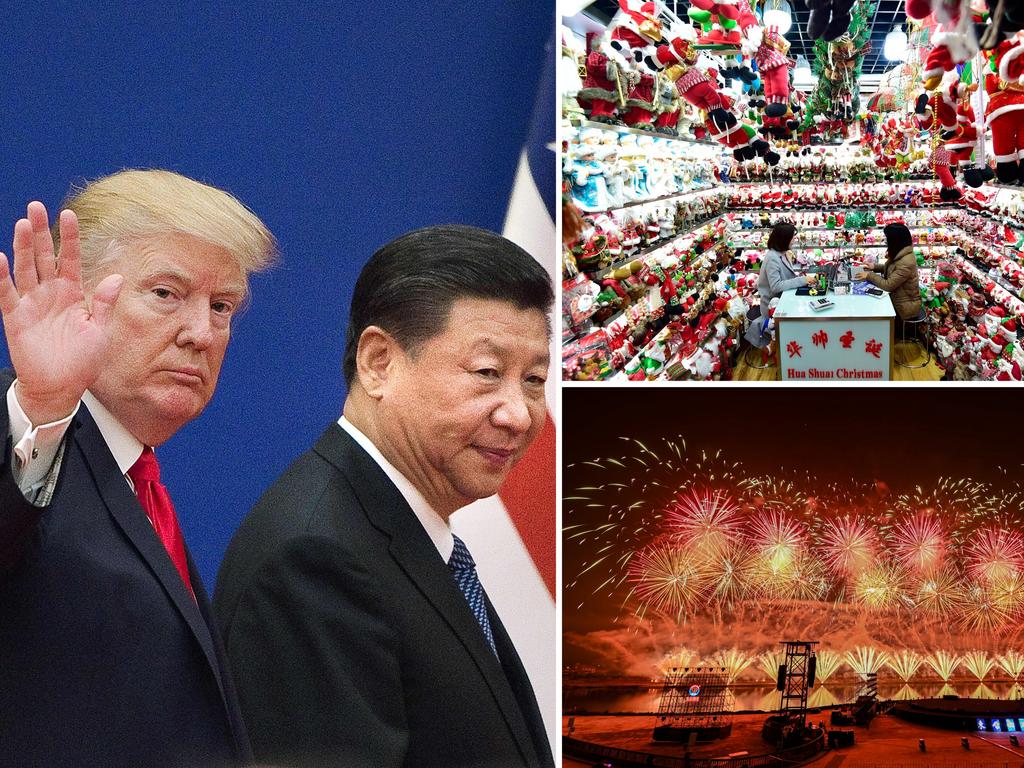Chinese President Xi Jinping wants to work with Anthony Albanese for ‘peace’
The warm comments underscore the notable improvement in the diplomatic relationship since 2022, but a heartfelt plea from the imprisoned Dr Yang Hengjun reveal ongoing troubles.

President Xi Jinping has called on Anthony Albanese to work with him to promote “world peace and stability” while imprisoned Australian Dr Yang Hengjun has asked the Prime Minister to help secure his release from his Beijing prison cell in two letters that underline the ongoing tension in relations with China.
In a written message delivered on Tuesday as the Prime Minister was sworn in by Australia’s Governor-General, the Chinese leader said he had engaged in “in-depth discussions on strategic, comprehensive and directional issues” in his three meetings with Mr Albanese.
“These discussions led to important consensuses that have provided strategic guidance to improve and grow bilateral ties,” Mr Xi said, according to Chinese newsagency Xinhua.
The Chinese president said he was ready to work with Mr Albanese to “advance the China-Australia comprehensive strategic partnership in a steady fashion”.
“Strengthening co-operation between China and Australia is of great significance for achieving shared development and promoting world peace and stability,” said Mr Xi in comments that were also run on the front-page of Wednesday’s People’s Daily, the Communist Party’s leading newspaper.
The warm comments underscore the improvement in the diplomatic relationship since 2022. But a separate, handwritten letter sent to the Prime Minister by Dr Yang from the Beijing No. 2 Prison and released by supporters late on Wednesday evening, revealed the problems that remain in Australia’s relationship with China after three years of the Albanese government’s “stabilisation” policy.
Dr Yang, 60, who was arrested at Guangzhou airport in 2019, thanked the Prime Minister for his advocacy in an emotional letter written to mark his sixth year of imprisonment in China.
“Your Excellency, respected Prime Minister, you have repeatedly conveyed your grave concerns about my case and deteriorating health to China’s paramount leader. You have advocated for me in all ways you can, and also provided practical help to me and my family, along with spiritual support,” wrote Dr Yang, known to his supporters as China’s “democracy peddler”.
“Dear Prime Minister Albanese, words are now failing me. Tears blur my vision. I can only use a silent voice to thank you and all the people who care for and love me. I know you and the Australian Government endeavour to do your utmost to bring me home for medical care and reunification with my family,” he added.

The Prime Minister is expected to visit China later in the year. Dr Yang’s supporters hope the Australian government can secure his release before the visit, following a template that freed Cheng Lei weeks before Mr Albanese’s first trip as PM to China in late 2023.
In February 2024, a Chinese judge gave him a suspended death sentence for giving secret information to Taiwan’s security officials when he was based in Hong Kong. Dr Yang has maintained his innocence throughout.
Before moving to Sydney in 2000, Dr Yang worked for China’s Ministry of State Security, making him one of the most complicated consular cases in Australian history.
Close friends have described the writer as an optimistic man who became deeply committed to transforming China after living in Hong Kong, the US and then Australia.
“I deeply love Australia. It is my beloved children’s motherland; its nature and lifestyle live up to its principles and expectations. I cherish and defend its core values. This is something I’ve sought for in my life, it is bigger than my own life,” Dr Yang wrote in his letter to the PM.
As well as securing the release of Ms Cheng, all of the trade bans on Australian exports to China previously worth $20 billion a year were unwound during the Albanese government’s first term.
Chinese state media has welcomed the government’s re-election and called for it to conduct a “pragmatic China policy”.
“A sustained pragmatic and rational approach to China under Albanese 2.0 will help take the bilateral relationship to a new level of mutually beneficial co-operation,” the Global Times wrote in a recent editorial.
“Experience in recent years has shown that blindly following Washington’s lead and treating China as a strategic adversary has harmed Australia’s diplomatic independence and dealt real blows to its economy,” the Chinese party-state outlet said.
Wang Zhenyu, a research fellow at the Institute of Asia-Pacific Studies at China Institute of International Studies, said “stabilising” relations with China was “one of Labor’s standout foreign policy achievements”.
“Since Albanese’s Labor Party came to power in May 2022, it has rolled back the previous Coalition’s anti-China stance and taken proactive measures to enhance dialogue with Beijing,” Mr Wang wrote this week.
“Under the direct engagement and strategic leadership of both countries’ leaders, China-Australia relations have bottomed out and rebounded, warming across the board.”
Mr Wang said Albanese’s Labor Party had “generally adopted a rational, restrained tone in all China-related statements” during the election campaign. The Prime Minister’s campaign commitment to end the ownership by a Chinese company of the Port of Darwin was not mentioned.
After a flagrant intervention in the 2022 election, Beijing was much more restrained during the recent campaign.
However, editorials in state media offered insight into Beijing’s preferences. Before Albanese met President Xi at the G20 in Brazil last November, the party-state’s leading English language masthead, the China Daily, praised the Australian Prime Minister’s “strategic autonomy” and urged other leaders to use his approach as a “useful reference”.
In one of the few pieces published by Chinese state media during the election, the Global Times accused Dutton of “beating ‘the drums of war’ against China” – a phrase also used in a speech in Mandarin by NSW Labor MP Jason Yat-sen Li, a clip of which has been widely circulated among Chinese Australian voters on Chinese-owned social media sites WeChat and RedNote.
Weeks before the election, a People’s Liberation Army Navy flotilla circumnavigated Australia and conducted live fire drills in the Tasman Sea.







To join the conversation, please log in. Don't have an account? Register
Join the conversation, you are commenting as Logout